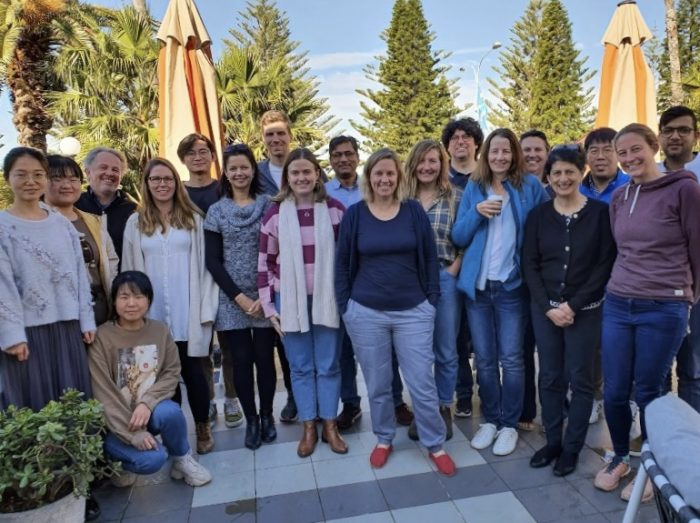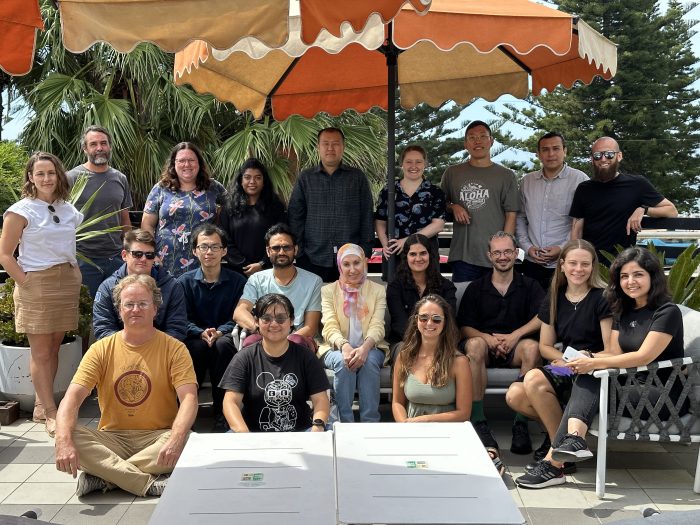Written by Angela Kaplish and Laure Poncet
This week is Harmony week in Australia, a national celebration to recognise diversity and inclusion. It is about respect, regardless of cultural or linguistic background.
For the ARC Centre of Excellence for Climate Extremes (the Centre), it’s an opportunity to celebrate our international scientific community – from PhD students to academics- and our diverse cultural backgrounds.
It’s also a chance to reflect on the remaining barriers to progress and their implications for shaping a brighter future.
The ARC Centre of Excellence for Climate Extremes community workshop 2023
A welcoming place for all
Australia is a country of multiple cultures, from the oldest continuous culture of our first Australians, to those of the newest arrivals from around the world.
For the academic scientific community, Australia is a destination for research and study for many international scientists.
Our Centre has benefited from the many international researchers and students who have become part of our community and we celebrate their contribution.
Dr Martin Singh, researcher at the Centre, said: “One of the strengths of our community is how international we are, with a large cohort of students and staff joining the Centre from overseas.”
Singh is part of the Culture and Diversity Committee at the Centre, which started at its formation in 2017. The Committee strives to help make the Centre a welcoming place for people from all cultures and countries.


Dr Youngil Kim, postdoctoral researcher, said: “The Centre is an amazing mix of people. It’s like the Korean dish bibimbap: all the ingredients are mixed together, but they become one and something special. I’m super grateful for how welcoming everyone’s been.”
Among the community, there is also a recognition that researchers and students can experience challenges, such as homesickness, difficulty fulfilling familial obligations, and adjusting to a different environment, often with a different language.
Languages spoken at the Centre, March 2024.
Associate Professor Andrea Taschetto, Chief Investigator at the Centre, said: “From the beginning, the Centre has consistently supported me on many fronts, far beyond just financial assistance. I’m talking about respect, inclusivity, collaboration, friendship, backing for my research, nurturing and training for students and postdocs.”
Recognising barriers and providing support
Even with these positive benefits, there still remain barriers to progress. Accessing appropriate support and visas for many international researchers and students remains problematic.
This has implications for affording rent and food and coupled with the cost of living crisis, the impact on students can be severe.
Singh said: “Ensuring that no-one feels excluded because of their culture or background is a responsibility for us all in the Centre, and our committee is just one conduit through which we can build an inclusive community.”
The Centre is actively working towards solving these challenges, encouraging all our researchers to achieve their potential and ensuring they feel supported.
‘We are all different. But together we colour our world amazing’.
Dr Amelie Meyer, Chief Investigator at the Centre, highlights Ezekiel Kwaymullina, First Nations author.
Did you know?
- more than 70 Indigenous languages are spoken in Australia.
- nearly half of Australians were born overseas or have at least one parent who was.
- The most common languages spoken in Australia are English, Mandarin, Arabic, Cantonese, Vietnamese, Italian, Greek, Tagalog/Filipino, Hindi, Spanish and Punjabi [3]
- ‘Difference is everywhere, just look and see’ wrote Maxine Beneba Clarke. What a great way to look at the world. Instead of seeing and identifying with stereotypes why not celebrate the differences? It’s like going from black and white to a full colour spectrum; and by that I don’t mean a ‘standard’ 7 colour rainbow, but the whole 10 million + colours * out there! *Check it out: https://artincontext.org/how-many-colors-are-in-the-world/
